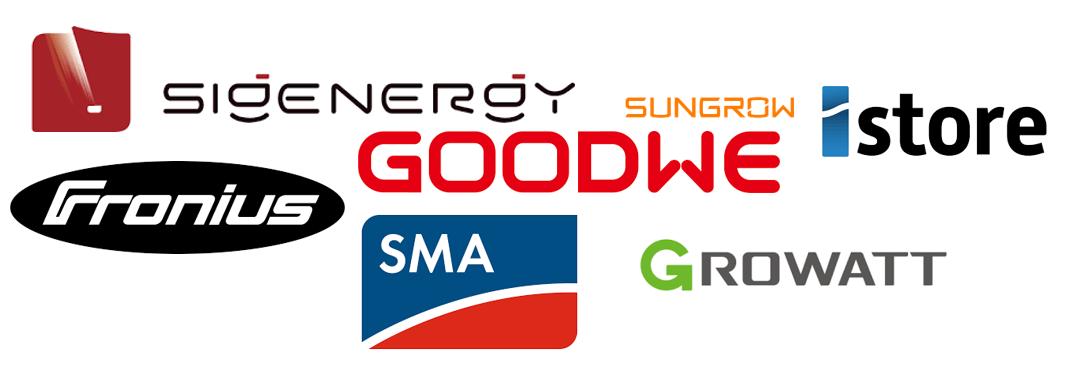Solar inverter reviews - Updated October 2025

Click any link to read the solar inverter review.
Sigenergy inverter and battery reviews
iStore inverter and battery reviews
FOXESS inverter and battery review.
Sungrow inverter and battery reviews
Fronius inverter and battery reviews
Solaredge inverter and battery reviews
Growatt inverter and battery reviews
SAJ inverter and battery reviews
Goodwe inverter and battery reviews
GE inverter and battery reviews
SMA inverter and battery reviews
Solar inverter review, updated January 2025.
The majority of inverters we install are from Sigenergy, Sungrow, iStore/Huawei, Fronius.
95% of the inverters we sell and install are hybrid inverters.
Hybrid inverters are 'solar and battery capable' instead of just 'solar only'.
50% of the installs we do these days include a battery.
That last percentage is steadily increasing.
If you are planning on buying a cheaper hybrid inverter; Goodwe, Growatt, Alpha, SAJ, Solax to name a few,
then you will certainly save some money compared to the top quality brands.
Coupled with some of their cheaper batteries, perhaps several thousand dollars cheaper.
They all offer an impressive array of features. That's really not the problem.
I'm not going to recommend any.
It's not that we don't sell any. We do some Goodwe and Growatt and SAJ.
All fine. Just not what I want to stick my neck out and actually recommend to anyone.
Sigenergy, iStore, Sungrow and to a lesser extent, Fronius, are my recommendations for hybrid inverters.
As you might expect, the quality increases over 'budget', and in many cases, so do the features and price.
iStore and Sigenergy have the best batteries.
Parallel connections between modules, battery optimisers, fire extinguishers triggered by temperature sensors.
Both of their batteries have a lot more features to increase output, longevity and certainly safety.
We install a lot of Sungrow inverters and batteries too.
It's a very well known brand, easily researched.
Solid, reliable product, huge range of single and three phase models at an attractive price.
Fronius have always been a very popular top quality brand. Made in Europe.
There are one or two things I don't particularly like about Fronius despite their obvious stellar reputation.
You can read more about my slight reservations about Fronius here.
If you want a quote for solar in Perth WA, then please contact us on...
(08) 9467 9655
or email
These reviews were written by Andrew MacKeith, Solar4Ever service manager since 2011.
